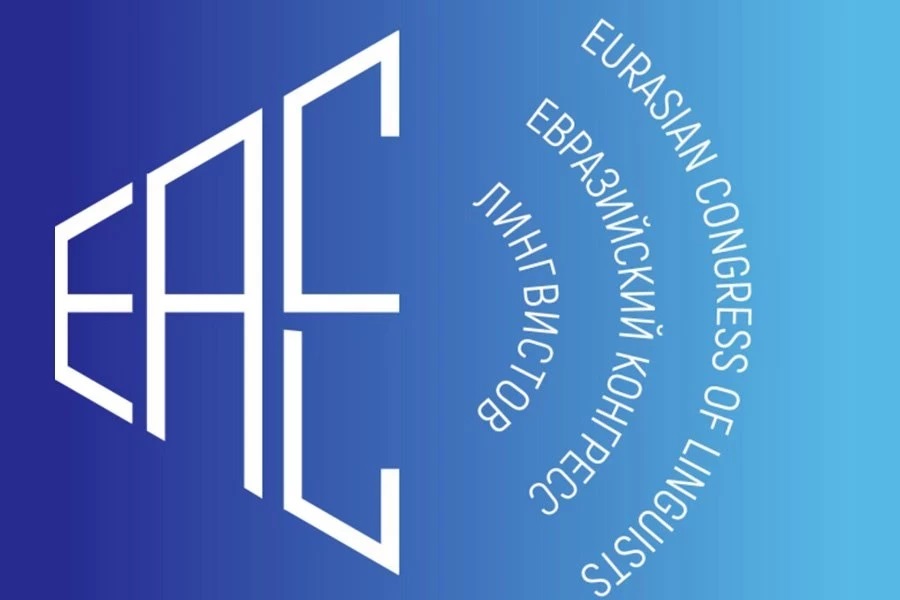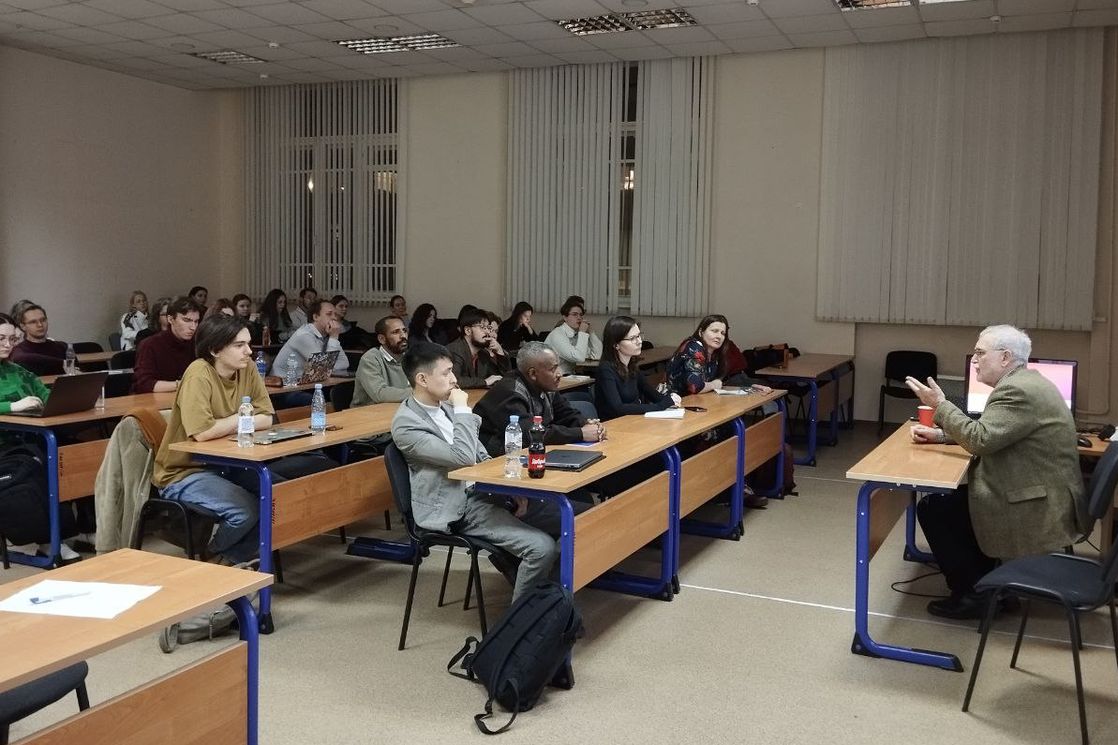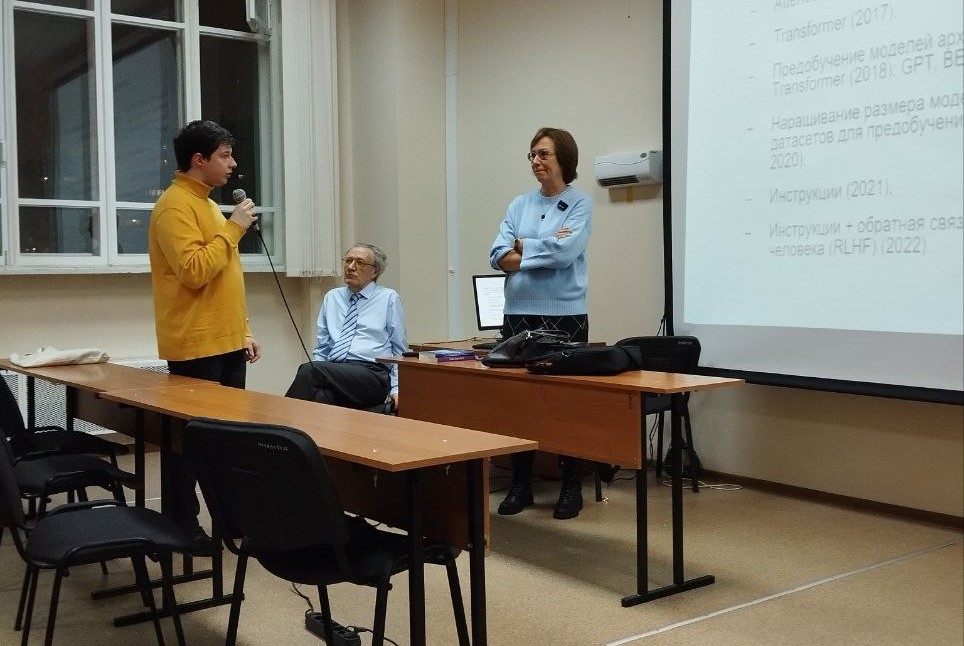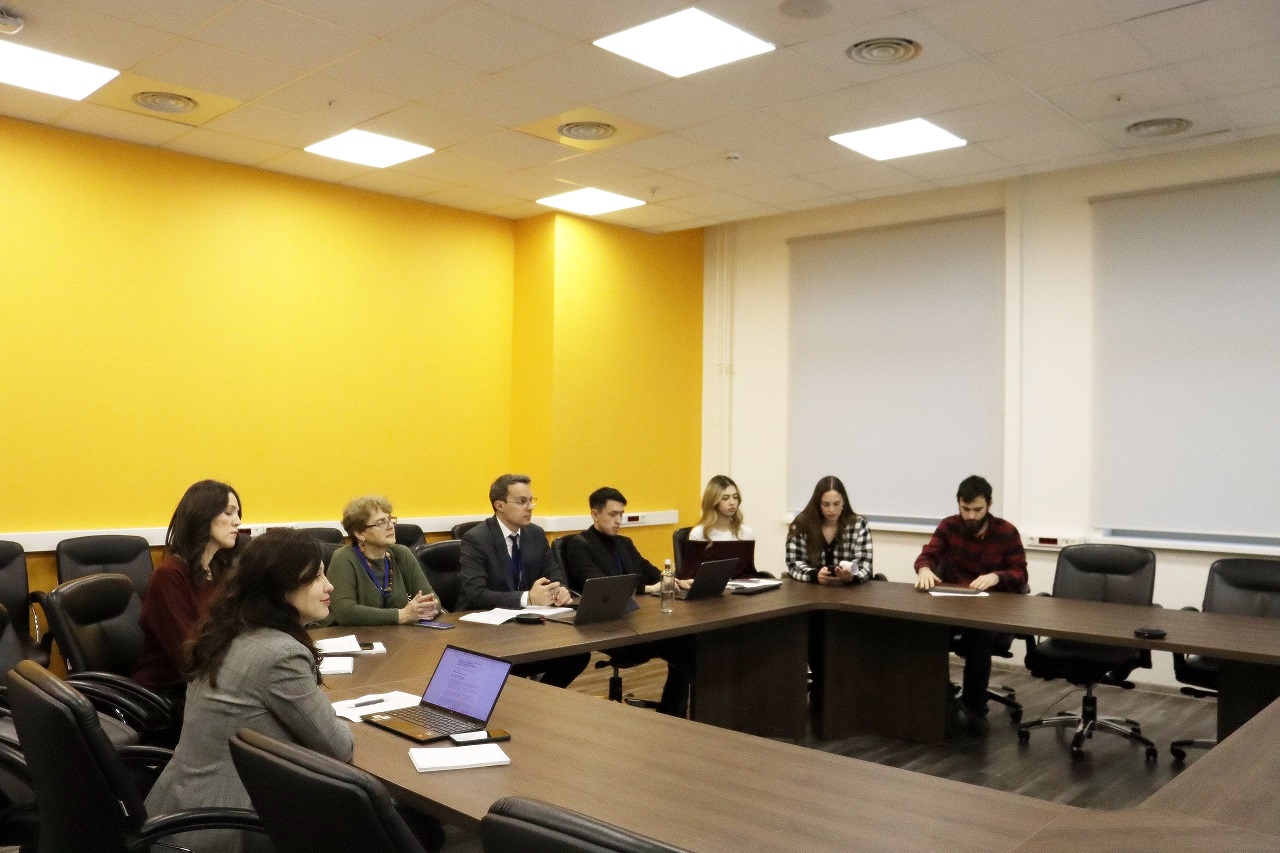Linguists from Around the World Discuss Current Academic Issues at First Eurasian Congress

HSE University partnered with the First Eurasian Congress of Linguists dedicated to the 300th anniversary of the Russian Academy of Sciences (RAS). The congress served as a platform for discussing relevant issues in linguistics related to all language groups of Eurasia and other regions worldwide. Approximately 200 researchers from 46 foreign countries and 300 Russian linguists from 50 regions of Russia participated in the event.
The largest delegations came from India, China, and the United States—countries with a strong tradition of linguistic research conducted by top-tier scholars.
The congress's largest section, ‘Sociolinguistics,’ was organised by Professor Mira Bergelson of the HSE Faculty of Humanities together with Professor Lenore Grenoble from the University of Chicago (USA). Under their leadership, three sessions were held within this section.

Mira Bergelson
One of the congress's main goals was to familiarise young researchers with the latest advancements in the study of language in its full diversity, noted Mira Bergelson. ‘I am delighted that our university, HSE, partnered with the congress, allowing us to organise various events targeting different audiences, all of which were engaging and well-attended. For instance, the pre-conference lectures attracted many students who kept the speakers engaged with questions. As a result, we agreed with Dr Camiel Hamans to deliver a series of lectures for our master’s programme, either remotely or in person, inspired by this discussion,’ she said.
According to Mira Bergelson, several new projects are also being planned in collaboration with colleagues from India and China as part of the Centre for Interdisciplinary Studies on Sociocultural Diversity and Language Policy, which is soon to be created at the HSE Faculty of Humanities.

Anastasia Grigoryeva
Mira Bergelson gave a presentation titled ‘Universal and Specific Features in Linguistic Situations: Telling Two Things Apart.’ Meanwhile, Anastasia Grigoryeva, Research Assistant at the HSE Faculty of Humanities, presented a report titled ‘Regional Variety of English in Alaska’ during the roundtable ‘Regional and Contact-Related Variability of Major Languages.’ The latter report was developed in collaboration with Mira Bergelson. ‘I greatly enjoyed the presentations of more experienced colleagues, participating in discussions, and the warm networking atmosphere. The congress was a truly unique platform for exchanging invaluable experiences and significant achievements while fostering pleasant academic connections,’ Anastasia Grigoryeva noted.
The plenary lecture ‘Old Russian Birchbark Documents as a Linguistic Source: Current State of the Art and Perspectives’ was delivered by Alexey Gippius, a member of the Russian Academy of Science and a professor at the HSE Faculty of Humanities.

Several off-site congress events were held in the HSE building complex on Staraya Basmannaya Ulitsa. For example, Dutch linguist Camiel Hamans (Comité International Permanent des Linguistes, CIPL) presented on ‘The Tension Between Standardisation and Rights for Minority Languages’ during a seminar of the master’s programme ‘Language Policy in the Context of Ethnocultural Diversity.’ As part of the Nostratic Seminar at the HSE Institute for Oriental and Classical Studies, HSE Associate Professor George Starostin hosted Australian linguist Paul Sidwell (University of Sydney) for his talk on ‘Modelling the Prehistory and Evolution of a Language Family: Lessons from Austroasiatic.’

The public discussion ‘Language and Artificial Intelligence’ featured Natalia Loukachevitch, professor at Lomonosov Moscow State University, and Valeriy Solovyov, professor at Kazan Federal University. The event focused on large language models and advancements in automated natural language analysis.
Linguists from Moscow State University led the roundtable ‘Management of Message Comprehension: Particles, Conjunctions, Parenthetic Words, Interjections.’

Denis Zubalov, Assistant Professor at the HSE Faculty of Humanities, organised and moderated the roundtable ‘Multilingualism in the City: Language Policy and Diversity.’ ‘The interview-format discussion with Prof. Yaron Matras about his book Speech and the City: Multilingualism, Decoloniality, and the Civic University was particularly engaging and insightful. This discussion set the tone for the event and laid the groundwork for subsequent presentations. The participants emphasised the need for continued research in this area and the importance of an interdisciplinary approach,’ Denis Zubalov shared.
The First Eurasian Congress of Linguists facilitated knowledge exchange among scholars from different countries, highlighting the importance of international collaboration for scientific development and progress in linguistics.
See also:
Twenty vs Ten: HSE Researcher Examines Origins of Numeral System in Lezgic Languages
It is commonly believed that the Lezgic languages spoken in Dagestan and Azerbaijan originally used a vigesimal numeral system, with the decimal system emerging later. However, a recent analysis of numerals in various dialects, conducted by linguist Maksim Melenchenko from HSE University, suggests that the opposite may be true: the decimal system was used originally, with the vigesimal system developing later. The study has been published in Folia Linguistica.
‘Learning Japanese Is a Long-Distance Race’
How can one master kanji, even with the help of sports, and why is Japanese Studies considered the pinnacle of Asian Studies? In this interview dedicated to the Japanese language, Vasilii Shchepkin and Olga Klimova discuss specific features of the language, the reasons for and experiences of learning it, as well as translation practices.
'Back in School, I Decided That I Would No Longer Suppress My Feelings'
Polina Makarova initially planned to pursue a career in programming but soon shifted her focus to theoretical linguistics. In this interview with the HSE Young Scientists project, she discusses her research on grammatical agreement in the names of professions, the importance of emotional intelligence, and the benefits of keeping an eublepharid, or leopard gecko, as a pet.
'Language Surrounds Us at All Times'
The most likely place to find Anton Buzanov is at the HSE building on Staraya Basmannaya Ulitsa, where the researcher spends nearly all his time. In his interview with the HSE Young Scientists project, he recounts his experience of leading a field expedition to Sami communities, shares his affection for teenage television shows, and observes that engaging solely in activities that bring joy can prevent burnout.
HSE University-Developed Linguatest System Launched in Nizhny Novgorod
Linguatest, Russia’s first foreign-language certification system, has been launched in the Nizhny Novgorod region. The system was developed by specialists from HSE University in cooperation with the National Accreditation Agency and the Prosveshchenie group of companies, who are providing certification and publishing support for the project. Nizhny Novgorod is the first city after Moscow to offer testing under the system.
'The Applied Linguistics Programme Allowed Me to Try Something I Was Interested in While Continuing What I Am Passionate About'
Austin Garrett-Sites, from the US, is a master's student of the Applied Linguistics and Text Analytics programme in Nizhny Novgorod. Students from around the world to come to Russia to get a European education in English with viable employment prospects. Austin spoke about his impressions after the first year of study and his favourite places in Nizhny Novgorod.
What’s It Like to Work as a Computer Linguist
The IT industry is rapidly developing and incorporating new professions. Zoya Mazunina and Arina Mosyagina, linguists with Seldon and graduates of the HSE University Fundamental and Applied Linguistics programme, met with university applicants to talk about the computer linguist profession, issues of automatic language processing, and how linguists use the knowledge they gain at HSE University.
Towards Finding Practical Solutions to Socially Significant Healthcare Problems
The Centre for Language and Brain in Nizhny Novgorod started operations in September 2020. Today, it is comprised of a team of linguists - teachers and students - who are researching the relations between speech and parts of the brain. The Director of the Centre, Natalya E. Gronskaya, spoke to the HSE Look about how the neuro-linguistic laboratory appeared in Nizhny Novgorod, as well as current tasks and prospects the Centre can offer the students and the region.
Predicting Grammatical Properties of Words Helps Us Read Faster
Psycholinguists from the HSE Centre for Language and Brain found that when reading, people are not only able to predict specific words, but also words’ grammatical properties, which helps them to read faster. Researchers have also discovered that predictability of words and grammatical features can be successfully modelled with the use of neural networks. The study was published in the journal PLOS ONE.
Weaving Languages Together: Why Megacities Need to Preserve Multilingualism
Moscow, like any modern big city, attracts migrants from different regions and countries. Some of them speak very little or no Russian. Their adaptation and successful integration depend in part on how fast they can learn Russian and in part on whether the city makes an effort to accommodate other languages. According to linguist Mira Bergelson, this latter factor is particularly important if the city is to benefit from immigration.


